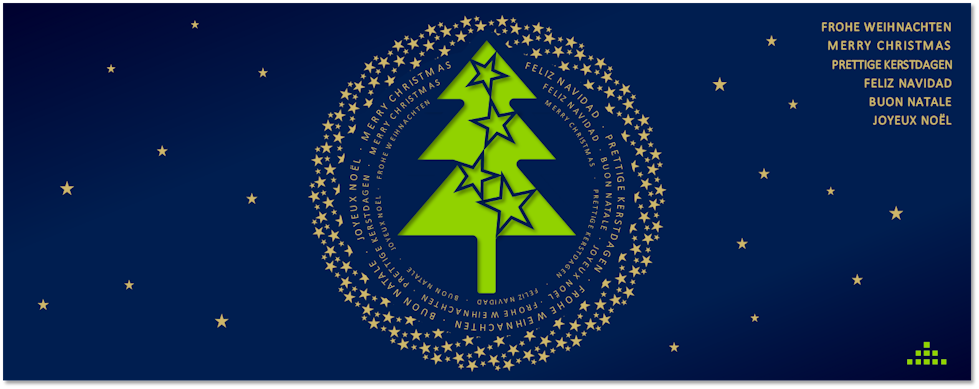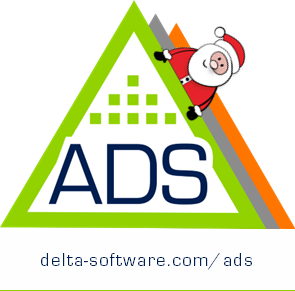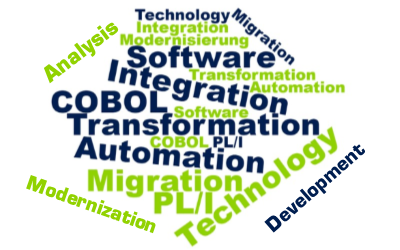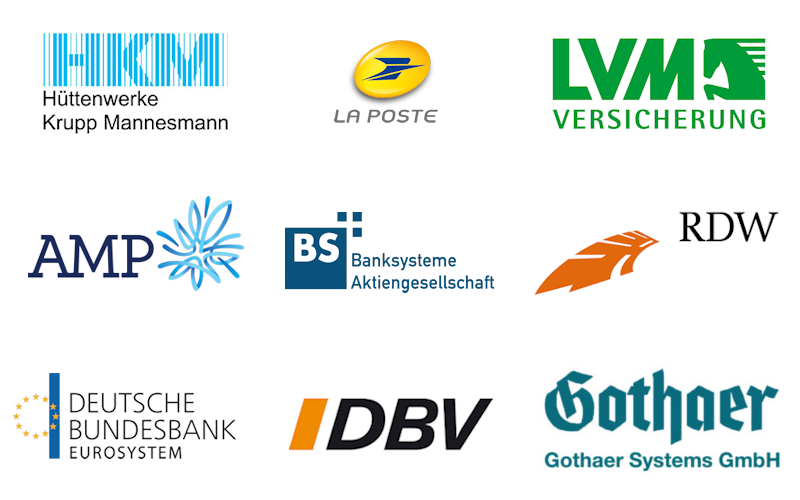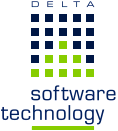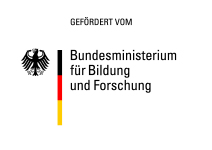Dear Reader,
Summer time: time for planning, learning, software updates.
We hope you now find the time to plan your next steps. For example, for updating your development environment for ADS applications, or learning more about the possibilities to automate your software development. Do you want to understand the applications developed by others faster and better? Then AMELIO Logic Discovery will help you - and you have more time for other things.
We wish you many good ideas.
Your Delta Software Technology Team
 1. ADS 6 Now Available on Unix Systems
1. ADS 6 Now Available on Unix Systems
With Delta ADS, you are developing your enterprise back-end applications platform-independently using development environment on Microsoft Windows-, Unix or mainframe systems. After we made ADS 6 available for development environments on Microsoft Windows platforms, we now provide ADS 6 also for the development on Unix platforms.
Learn more about the new ADS 6 on Unix ...
ADS 6 Now Available on Unix Systems
ADS 6 Now Available on Unix Systems
With Delta ADS, you are developing your enterprise back-end applications platform-independently in order to subsequently generate them in COBOL and/or PL/I for a specific target platform. To this end, you are using Microsoft Windows, Unix or mainframe systems as development environments.
Delta ADS 6 now offers you new functions and language extensions to help you to evolve and maintain your applications even more efficiently.
After we made ADS 6 available for development environments on Microsoft Windows platforms, we now provide ADS 6 also for the development on Unix platforms.
ADS Development on Unix Systems
This new Version of ADS 6 is available for IBM AIX and diverse other Linux and Unix systems. It is suitable for all customers who
- Develop on Unix systems for one or more Unix systems as target platform (generation on Unix for Unix)
- Develop on Unix systems for one or more mainframe systems as target platform (cross-generation on Unix for mainframe)
- Want to relocate their application development from mainframe systems to Unix systems, regardless of the production environments where the applications are executed.
Get to Know the New ADS 6 on Unix Now
We would like to introduce the new ADS 6 on Unix to you and to help you optimise your development with Delta ADS. Get to know ADS 6 on Unix now.
Delta ADS 6
You will find further information about the advantages of ADS 6 here.
„The new ADS 6 enables us to further improve the efficiency and quality of our software development and maintenance. For example, new functions for the detailed documentation and description of the generating process help us to securely and fast perform changes and enhancements on our large scale and complex applications."
Oswald Klackl; B+S Banksysteme; Head of Architecture & Quality Management
Download Language: Englisch - Version: MT21072.04

ADS 6 and ADS on Eclipse
Increased Efficiency and Quality in the Software Development.
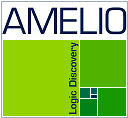 2. Data Structures: All at a Glance
2. Data Structures: All at a Glance
AMELIO Logic Discovery provides comprehensive in-depth data structure analyses for COBOL, PL/I and Delta ADS applications. With the new release of AMELIO Logic Discovery, all you want to know about the data structures of your applications is available at a glance. Thus, you understand your applications even faster.
Learn more about, how AMELIO Logic Discovery can help you to better understand your data structures ...
Data Structures: All at a Glance
Data Structures: All at a Glance
 AMELIO Logic Discovery provides comprehensive in-depth data structure analyses for COBOL, PL/I and Delta ADS applications. With the new representation of the analysis results, the complete knowledge about your data structures, their declaration, usage, and dependencies is available directly at a glance.AMELIO Logic Discovery provides comprehensive in-depth data structure analyses for COBOL, PL/I and Delta ADS applications. With the new representation of the analysis results, the complete knowledge about your data structures, their declaration, usage, and dependencies is available directly at a glance.
AMELIO Logic Discovery provides comprehensive in-depth data structure analyses for COBOL, PL/I and Delta ADS applications. With the new representation of the analysis results, the complete knowledge about your data structures, their declaration, usage, and dependencies is available directly at a glance.AMELIO Logic Discovery provides comprehensive in-depth data structure analyses for COBOL, PL/I and Delta ADS applications. With the new representation of the analysis results, the complete knowledge about your data structures, their declaration, usage, and dependencies is available directly at a glance.
The Problem with Data Structures
To understand an application, it is essential to understand its data structures. But, in applications that have been implemented using procedural languages like COBOL or PL/I, either native or generative, the declarations, usage and dependencies are spread over the entire code or even are only implicit.
In order to facilitate the understanding of these applications, AMELIO Logic Discovery offers comprehensive data structure analyses.
New Release of AMELIO Logic Discovery
With the new release of AMELIO Logic Discovery, all you want to know about the data structures of your applications is available at a glance. Thus, you understand your applications even faster.
See for yourself! Learn more about, how AMELIO Logic Discovery can help you to better understand your data structures.
Download Language: Englisch - Version: MT21084.01

AMELIO Logic Discovery provides extensive data structure analyses for COBOL, PL/I and Delta ADS applications. With the new presentation of the analysis results, the knowledge about your data structures, their declaration, usage and dependencies is now available at a glance.
Read more
 3. New (Refresher) Training Courses
3. New (Refresher) Training Courses
Anyone using tools to automate software development needs in-depth knowledge of the methods, methods, and capabilities of the tools. And not just "in principle", but in relation to the concrete environment and task.
Our training courses and workshops help you to use Delta tools efficiently and to optimise the development of your applications: practice-oriented, taking into account your main focus.
ADS Basics - ADS for Administrators - ADS Refresher - ADS on Eclipse - ADS What's new
Here are the new training schedules:
New (Refresher) Training Courses
New (Refresher) Training Courses
Anyone using tools to automate software development needs in-depth knowledge of the methods, modes of operation, and capabilities of the tools. And not just "in principle", but in relation to the concrete environment and task.
Our training courses and workshops help you to use Delta tools efficiently and to optimise the development of your applications: practice-oriented, taking into account your main focus.
ADS Basics - ADS for Administrators - ADS Refresher - ADS on Eclipse - ADS What's new
Here are the new training schedules for the first half of 2018:
- 15.-17.05.2018 - ADS Basics
- 05.-07.06.2018 - ADS for Administrators
- 12.-13.06.2018 - ADS Refresher
- 19.-20.06.2018 - ADS on Eclipse
- 26.06.2018 - ADS What’s new
Download Delta Newsletter
Download Language: Englisch - Version: NL21017.03

Content
- ADS 6 Now Available on Unix Systems
- Data Structures: All at a Glance
- New (Refresher) Training Courses
Dear Reader,
IT modernisation remains to be a top priority. Following an invitation by the International Quality and Productivity Center (IQPC) we present possibilities for the automated software modernisation in Washington DC. In the GI-Workshop "Software Reengineering & Evolution" in Bad Honnef, Germany, we’d like to discuss with you how to automatically regain the application knowledge contained in COBOL and PL/I applications.
Investments for modernisation as well as costs for evolution and maintenance of your applications can be considerably be reduced by cleaning the applications. Best solution is automation: Have a look at our new AMELIO CleanUp Factory!
Furthermore, new product versions and product information are available for you.
Have fun reading.
Your Delta Software Technology Team
News in Brief...
 1. Conference & Lecture: 4th Government IT Modernization
1. Conference & Lecture: 4th Government IT Modernization
New IT development is limited by the fact that 90% of IT budgets are spent on maintenance of legacy systems. To enable projects to reduce the cost of maintenance, the US Federal Government has promised US$ 90 Billion for Government IT Modernization for its organisations. To share strategies, solutions and experience the 4th Government IT Modernization conference will be held April 26-28 in Washington DC, USA.
Auf Einladung des International Quality and Productivity Center (IQPC) stellen wir erfolgreiche IT-Modernisierungsprojekte vor.
Get the presentation material here...
Conference & Lecture: 4th Government IT Modernization
Conference & Lecture: 4th Government IT Modernization
 New IT development is limited by the fact that 90% of IT budgets is spent on maintenance of legacy systems. To enable projects to reduce the cost of maintenance, the US Federal Government has promised US$ 90 Billion for Government IT Modernization for its organisations. To share strategies, solutions and experience the 4th Government IT Modernization conference will be held April 26-28 in Washington DC, USA.
New IT development is limited by the fact that 90% of IT budgets is spent on maintenance of legacy systems. To enable projects to reduce the cost of maintenance, the US Federal Government has promised US$ 90 Billion for Government IT Modernization for its organisations. To share strategies, solutions and experience the 4th Government IT Modernization conference will be held April 26-28 in Washington DC, USA.
Delta Software Technology GmbH has been contacted by IQPC to contribute to the conference. Reg Mulder will attend the conference and present information about our successful IT Modernizations projects from the last decade: Friday, 28.04.2017 14:15 - 15:00 - "Enabling New Technologies, Reducing Costs and Improving Quality Through Automated Software Modernization".
You will find our Lecture on SlideShare.
 2. Clean Up Your COBOL–, PL/I- and Delta ADS Applications
2. Clean Up Your COBOL–, PL/I- and Delta ADS Applications
Flexibility and fast adaptability of core applications are prerequisites for an optimal software support of business processes. COBOL, Delta ADS and PL/I applications have grown over decades; they have been extended and adapted to new requirements. This has reduced the maintainability of the applications and significantly hinders their further development.
With the AMELIO CleanUp Factory by Delta Software Technology you can quickly and securely clean up your COBOL and PL/I as well as Delta ADS applications and thus regain the flexibility and adaptability of your core applications.
Clean up your applications securely with AMELIO CeanUp-Factory...
Clean Up Your COBOL–, PL/I- and Delta ADS Applications
Clean Up Your COBOL–, PL/I- and Delta ADS Applications
Flexibility and fast adaptability of core applications are prerequisites for an optimal software support of business processes. COBOL, Delta ADS and PL/I applications have grown over decades, they have been extended and adapted to new requirements. This has reduced the maintainability of the applications and has significantly hindered their further development.
With the AMELIO CleanUp Factory by Delta Software Technology you can quickly and securely clean up your COBOL and PL/I as well as Delta ADS applications and thus regain the flexibility and adaptability of your core applications.
- AMELIO CleanUp-Factory analyses the entire source code automatically.
- Dead code sequences, from data elements to single statements up to entire code blocks, are detected and securely removed.
- Different syntax variants can be reduced to one standard, e.g. from COBOL’74 to COBOL’85.
- If the code to be cleaned up is derived from a copybook, an include or a macro, all impacts and dependencies are verified and the modules are cleaned up consistently.
- By using the Pretty-Print function the layout of the application can be re-formatted and the improved readability can be achieved.
- Every change that is implemented by the factory is documented in an audit-proof way, as special marking in the code and/or as additional documentation that contains a detailed list of the lines that have been removed or modified in which module and why.
- The clean-up of the application can be performed cluster-wise or for the entire source code.
- The maintenance and further development of the application can be continued without any obstruction while the CleanUp takes place.
Additional options
But with the AMELIO CleanUp-Factory not only standard clean ups can be performed. The factory can be precisely tailored to the customer’s requirements. In this way, the read- and maintainability of the application can be improved through individual options, like:
- Name changes of sections, paragraphs, data elements
- Uniform implementation of company policies
- Replacement of (business-specific) code smells
- Replacement of third-party tools such as the decision table generator VORELLE by Evaluates, DETAB etc.
CleanUp your Application with AMELIO CeanUp-Factory ...
 3. The Perfect Solution for a Secure Replacement of IMS Databases: AMELIO Modernization Platform
3. The Perfect Solution for a Secure Replacement of IMS Databases: AMELIO Modernization Platform
Companies who want to replace their IBM IMS databases with relational databases are facing an enormous challenge. Since this always concerns critical core applications, the most important aspects are security and the possibility of parallel development.
With AMELIO Modernization Platform, Delta Software Technology provides a safe and very flexible solution for such complex modernisation projects.
Find more information in our product description...
The Perfect Solution for a Secure Replacement of IMS Databases: AMELIO Modernization Platform
The Perfect Solution for a Secure Replacement of IMS Databases: AMELIO Modernization Platform
Companies that want to replace their IBM IMS databases with relational databases are facing an enormous challenge.
With AMELIO Modernization Platform, Delta Software Technology provides a safe and very flexible solution for such complex modernisation projects.
 Find more Information in our new Flyer:
Find more Information in our new Flyer:
AMELIO Modernization Platform - Replacing IMS Databases
Learn more in our articles on: "Successfully Replace IMS Databases"
 4. Support information: New Product Versions available
4. Support information: New Product Versions available
We have released new versions of the following products:
- ADS 6 for COBOL 6.1.7
- ADS on Eclipse 6.7.5
Schedule the update of your Delta products now. You can find more information about new features and fixes in the release notes at the support area of our website...
Support information: New Product Versions available
Support information: New Product Versions available
Today we have released new versions of the following products:
- ADS 6 for COBOL 6.1.7
- ADS on Eclipse 6.7.5
You can find more information about new features and fixes in the release notes at the support area of our website ...
 5. GI-Workshop "Software-Reengineering & Evolution"
5. GI-Workshop "Software-Reengineering & Evolution"
Software reengineering and evolution are core aspects to preserve the benefits and value of large software systems while requirements and environment conditions are changing constantly.
To address this issue the German Informatics Society (Gesellschaft für Informatik (GI)) organises the main German speaking reengineering conference. This conference takes place together with the Workshop „Design For Future“ of the working group "Long-living Software Systems".
Please find further information here...
GI-Workshop
GI-Workshop "Software-Reengineering & Evolution"
 Software reengineering and evolution are core aspects to preserve the benefits and value of large software systems while requirements and environment conditions are changing constantly.
Software reengineering and evolution are core aspects to preserve the benefits and value of large software systems while requirements and environment conditions are changing constantly.
To address this issue the German Informatics Society (Gesellschaft für Informatik (GI)) organises the main German speaking reengineering conference. This conference takes place together with the Workshop „Design For Future“ (DFF 2017) of the working group "Long-living Software Systems".
GI: 19. Workshop Software-Reengineering & Evolution
08 – 10 May 2017, Bad Honnef, Germany
08 – 10 May 2017, Bad Honnef, Germany
Delta Software Technology will present possibilities to regain the application knowlegde implemented in the software systems.
Lecture: "Understanding COBOL and PL/I Applications Automatically" (in German)
As applications grow old, their maintenance, evolution and modernisation become more and more difficult. The knowledge about the applicatons is draining over time.
Regaining that knowledge is not that simple due to the size and complexity of such applications.
Therefore, AMELIO Logic Discovery helps you to regain the knowledge implemented in COBOL and PL/I applications with 100% automation.
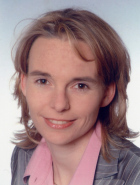 Our Speaker
Our Speaker
Dr. Daniela Schilling
Dr. Daniela Schilling is CEO of Delta Software Technology.
Further Information
Further information on the event (German):
http://fg-sre.gi.de/wsre2017.html
Further information on DFF 2017 (German):
http://akl2s2.ipd.kit.edu/veranstaltungen/dff2017
Register now
https://userpages.uni-koblenz.de/~riediger/wsr/registration.php
You can’t participate? Please contact us to discuss the topic and solutions directly.
You will find our Lecture on SlideShare ...
Twitter - Live...
Unsere frühere Kollegin Daniela Schilling (Delta Software Technology) spricht über #Reengineering von #COBOL- & #PL/I-Anwendungen #WSRE2017 pic.twitter.com/gaImAuCfSm
— Stefan Sauer (@stsauer13) 10. Mai 2017
 6. Join our Team!
6. Join our Team!
We are looking for:
- Sales Representatives
- OO Software Developers
- System Administrator
Apply now...
Join our Team!
Join our Team!
To enrich our team we are looking for
OO software developers
Your Profile:
- You have a baccelor or master degree in information technique or a comparable education in the IT sector.
- You already have a solid knowledge in object oriented software development.
- Ideally you already have experience in C++, Java, generator systems , Eclipse or Visual Studio.
Your Chance:
- Besides an attractive salary model you can expect a varied and responsible task area in a friendly, professional team and a business culture that is based on openness, fairness and enjoyment of work.
Curious?
Curious?
Please send your informative documents including your earliest possible starting date and your salary expectations to:
Delta Software Technology GmbH
Winfried Buhl
Eichenweg 16
57392 Schmallenberg, Germany
Tel.: +49 2972 - 9719-0
E-Mail:
Download Delta Newsletter
Download Language: Englisch - Version: NL21017.02

Content
- Conference & Lecture: 4th Government IT Modernization
- Clean Up Your COBOL–, PL/I- and Delta ADS Applications
- The Perfect Solution for a Secure Replacement of IMS Databases: AMELIO Modernization Platform
- Support information: New Product Versions available
- GI-Workshop "Software-Reengineering & Evolution"
- Join our Team!
Dear Reader,
are your Delta installations up-to-date? Take a look at our list of the latest product versions and plan the update of your Delta products now.
Consolidation and modernisation of their IT applications were the main interest of our clients and prospects. According to the analysts, these topics will have top priority also in 2017. We have put together the most popular articles.
We’d like to know from you: Which topics and projects have top priority in your agenda for 2017?
Your Delta Software Technology Team
 1. Current Product Versions – Plan Your Updates now!
1. Current Product Versions – Plan Your Updates now!
Updating the development tools often collides with the project work. Why change something that works? But there are good reasons to update to the current versions:
- Old product versions cause higher costs.
- New features accelerate the development.
- Error corrections avoid workarounds that make the next update more difficult.
You do not know how much your individual installations differ from the standard products and how to determine dependencies and efforts?
We help you to update to the current product versions quickly and easily.
Get information and updates right now. You’ll find the list of our current product versions here:
Current Product Versions – Plan Your Updates now!
Current Product Versions – Plan Your Updates now!
Updating the development tools often collides with the project work. Why change something that works? But there are good reasons to update to the current versions:
- Old product versions cause higher costs.
- New features accelerate the development.
- Error corrections avoid workarounds that make the next update more difficult.
You do not know how much your individual installations differ from the standard products and how to determine dependencies and efforts? We help you to update to the current product versions quickly and easily.
Today we have released the new version of the following product:
- ADS on Eclipse 6.7.4
You can find more information about new features and fixes in the release notes at the support area of our website.
Get information and updates right now. You’ll find the list of our current product versions here.
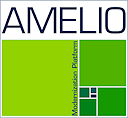 2. Cutting Risks and Costs for Modernisation and Migration
2. Cutting Risks and Costs for Modernisation and Migration
Changes across all applications are one of the permanent tasks of the IT departments in large companies. If and when thousands of modules of the productive IT application systems have to be changed, the answers to the following questions are essential:
- How can you ensure consistency and quality of the changes?
- How do you avoid blocking other projects?
- How do you integrate changes from other projects into the mass changes?
- How do you guarantee the safety and stability of the productive systems?
- How do you manage the effort, costs and timing of the testing?
For the modernisation of your legacy applications, you should know what AMELIO could do for you:
Cutting Risks and Costs for Modernisation and Migration
Cutting Risks and Costs for Modernisation and Migration
New technical demands and legal regulations as well as new technologies and modernization projects frequently require the modification of the large productive legacy applications. The necessary mass changes in the COBOL and PL/I applications that have grown over decades cause high costs and are a risk for the ongoing business operation.
If you have large legacy applications in your organisation, you certainly should know about the possibilities of AMELIO.
AMELIO Modernization Platform drastically reduces the risks and costs of platform changes, application modernisations and database migrations because AMELIO completely automates the changes.
Mass Changes in Productive Systems
Changes across all existing applications belong to the permanent tasks of the IT departments in large enterprises. They are initiated by new IT strategies, changed business processes, legal regulations which must be met by given deadlines, and the like.
The more extensive, complex and interconnected the applications are, the higher are the risks and costs of such projects. If – without endangering the ongoing business operation – thousands of modules of the productive application systems have to be changed, the answers to the following questions are essential:
- How can you ensure the consistency and quality of the changes?
- How do you avoid blocking other projects by the changes and - in reverse – how do you integrate the changes from other projects into the mass changes?
- How do you guarantee the security and stability of the productive systems?
- How do you get the expenditure under control as well as the costs and the temporal organisation for testing?
100% Automation with AMELIO Modernization Platform
AMELIO Modernization Platform is a perfectly tailored factory that completely automates extensive and complex changes of large applications – 100%.
- AMELIO changes the code consistently, reproducibly and absolutely error-free.
- AMELIO documents all decisions and changes audit proven.
- AMELIO supplies easily maintainable code for the further development.
- AMELIO enormously reduces the test expenditure.
The capabilities and the efficiency of AMELIO open up absolutely new possibilities for planning and conducting large projects.
- Project strategies can be verified with the entire volume.
- Other projects are not blocked.
- Transformation schedules can be selected at will, freeze periods are extremely short.
These are only a few of the advantages that AMELIO offers. You can learn more about the AMELIO Modernization Platform on our Web site.
What Do Our Customers Say about AMELIO?
„...The extent to which AMELIO automated the project was truly amazing. The tool delivered absolutely reliable results. Thanks to AMELIO this essential project was completed on time and within budget..."
Jürgen Mülders, Service Manager, T-Systems Enterprise Services, Germany
Our report on the AMELIO project at RDW, the Dutch Vehicle Authority, gives you an impression of how efficient the AMELIO Modernization Platform really is. RDW used AMELIO successfully for a very extensive and ambitious modernization project comprising not only a platform change and database migration but also an application modernisation:
- More than 10,000 modules,
- More than 10 million LOCs,
- More than 1 million individual changes.
"AMELIO Modernization Platform is the reliable solution for the systematic modernisation of our complex applications – 100% automated, tailor‐made and generative. Using AMELIO we were able to accomplish this demanding large project faster and with less resource."
Carine Joosse, ICT Manager Projects, RDW, The Netherlands
How Can You Profit from AMELIO Modernization Platform?
Due to its flexible architecture AMELIO can be used for very different modernisation and migration projects.
You can obtain further information about the AMELIO Modernization Platform on our Web site, including a summary of typical AMELO scenarios, a list of supported platforms as well as explanations concerning the technology behind AMELIO.
You Would Like to Know More?
Please get in touch if you would like to know more about how the AMELIO Modernization Platform can help you to conduct changes to your applications securely, reliably, error-free and 100% automated. If you have large legacy applications in your organisation you certainly show know about the possibilities with AMELIO.
 3. Modernisation: Consolidating Database Systems
3. Modernisation: Consolidating Database Systems
Many companies are struggling against increasing costs resulting from the parallel use of different database technologies, the dwindling know-how and the growing expenditure for the further development and maintenance of the large and complex applications that ensure their daily business.
As an example for the consolidation of database systems, we explain the possibilities for replacing IBM IMS databases:
Modernisation: Consolidating Database Systems
Modernisation: Consolidating Database Systems
Old database technology causes high cost and complicates the utilisation of new technology for central IT applications. Furthermore, there are less and less developers and system technicians knowing the old technology. This applies to hierarchical databases such as IBM IMS DB as well as for network and other non-relational databases such as Cincom TOTAL, ICL IDMS, Fujitsu (Siemens) UDS, Unisys DMS, Bull IDS2, CA Datacom, Software AG ADABAS and others.
We present ways that allow you to preserve the functionality of your applications while migrating to SQL databases without risk.
Heterogeneity is Fact
Large companies always needed to process large amounts of data very fast every day. For this type of “Big Data” they preferably used the extremely rapid IBM IMS databases. The large and complex applications implement the company’s core-business and process reliably billions of transactions every day. In parallel, the companies have established relational databases such as ORACLE, Microsoft SQL Server, IBM DB2 and others, to respond to the needs of real-time processing and flexible ad-hoc queries. The data in the different systems usually is synchronised by using ETL processes.
Good Reasons to Migrate
A lot of companies have the replacement of IMS databases on their agenda – for good reasons:
- High cost and multiplied efforts due to the parallel usage of different databases, the additionally required (ETL-) processes and the protection of the consistency.
- IMS databases lack the flexibility and the fast unlimited access to the data offered by relational databases.
- The know-how for the applications implemented in COBOL and PL/I is dwindling as well as the necessary technical know-how for IMS.
- The introduction of new technologies (Mobile, Cloud, etc.) is difficult.
However, the hurdles for the replacement of IMS databases are extremely high: The business-critical applications are very large, very complex, very old and in most cases the existing documentation is unsuitable for the migration projects.
Replacing IMS Databases Successfully
Being a successful provider of generative tools for more than 40 years, we rely on full automation of all changes necessary in the applications to replace the IMS databases. Our tools automate the migration and the modernisation and also support re-implementation. Depending on requirements, these solutions can freely be combined and even allow for changes in strategy during the project.
All changes to the source code will be implemented using a transformation factory that is perfectly configured for the task. This way, you achieve maximised automation, highest quality, minimal test effort, minimal freezing and you are able to eliminate the risks.
Our customers confirm that they could ensure the long-term functionality of their enterprise applications with our solutions.
The Migration
Your applications contain all the information about the actually used IMS data model, i.e. which data structures of which segments of what IMS databases are used. Our tools extract this information and derive the mapping rules for a new or an already existing relational data model. Based on these and further rules the COBOL and / or PL/I code will be transformed fully automated. All IMS database accesses will be replaced by SQL accesses with all trimmings.
The resulting applications look and operate as if they were directly implemented for a relational database system by a very sophisticated programmer. Hence, they are readable and maintainable. Our customers confirm that
- the completely automated transformation slashes the risks and the test effort
- during the migration project , they could develop in parallel and the modifications were integrated automatically
- the relational database system can even be changed during the project
- extremely short freeze period are to be expected
- no footprint or vendor lock-in is produced.
The Modernisation
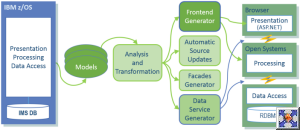 COBOL and PL/I are still excellent for the implementation of business logic in the back end. But, for the presentation layer as well as for the data access layer there are more modern techniques and environments available today like .NET, Java, etc. These layers can be connected smoothly and with excellent performance using automatically generated interfaces and intelligent adapters.
COBOL and PL/I are still excellent for the implementation of business logic in the back end. But, for the presentation layer as well as for the data access layer there are more modern techniques and environments available today like .NET, Java, etc. These layers can be connected smoothly and with excellent performance using automatically generated interfaces and intelligent adapters.
Using our solutions, this type of modernisation can be automated. As explained above regarding the migration, the data model used by the applications as well as the rules for the automated transformation into a relational model will be determined. The entire code associated with to the data accesses can be extracted into a separate data access layer. Clearly readable and therefore really maintainable data access modules will be produced fully automatically in modern language like C#, Java, etc.
Our clients confirm that their confidence in our technology was justified and that the use of Delta’s tools reduced the test effort by 90%.
The Re-implementation
You would like to implement the functionality of your IMS applications with new databases and new languages but the experts with IMS know-how have already retired and documentation serves maintenance and not re-development purposes?
Unlike other solution providers, we believe that there are limits to automation. Namely, when it comes to real paradigm change like it is inevitable for the re-implementation with modern languages. We promote easily maintainable and legible code, but not the transformation of COBOL into a kind of “J(ava)obol”.
With our solutions for Application Knowledge Extraction, we help you to understand and to assess your existing applications in detail and to derive the specifications for the re-implementation from the applications’ analysis. In addition, we can generatively produce the layers for the data accesses and the presentation as described above. You will obtain clearly readable and therefore really maintainable modules in modern language like C#, Java, etc.
And What About the Transaction Environment?
Within the frame of the replacement of IMS DB you also will think about the future design of the online applications. Depending on the new target environment – may it be classic TP monitor or a browser based environment with Java or .NET Application Server or micro services – the applications’ code for IMS TM (formerly IMS DC) or IBM CICS has to be transformed, too. With our solutions you can automate such transformations as well. This way, you are also able to automate the construction of a modern service-oriented application architecture (SOA).
Let’s work together
The possibilities described above show principle directions. They are flexible and can be combined and implemented gradually or at once. Since both the starting points as well as the objectives are different for each customer, we offer customized and perfectly tailored solutions.
How do you want to replace your IMS databases? Migrating or modernising or re-implementing the applications? We will be pleased to present our solutions and we look forward to discuss your requirements and objectives.
More information can be found here: "Automatically replacing IBM IMS/DB"
Download Language: Englisch - Version: MT21081.01

CGI Germany selects Delta Software Technology as partner for the modernization project at BSQ Bauspar AG.
BSQ Bauspar AG plans to migrate its core application package. The project includes also the migration of the complete infrastructure. Particular attention will be paid to the transformation of the database management system IMS/DB to a relational database management system. CGI Germany was chosen as general contractor for this modernization project. Delta will provide the
... Read more

 4. Modernisation: Replacing Generative Development Systems
4. Modernisation: Replacing Generative Development Systems
Whoever uses generative tools for the development of COBOL and PL/I applications wants to profit from the advantages also in the future. Thus, a modernisation must maintain the higher level of abstraction and thus go far beyond a simple language transformation.
Read on to get more information about the research project MoMaG here:
Modernisation: Replacing Generative Development Systems
Modernisation: Replacing Generative Development Systems
MoMaG - Modernisation of Macro-based Generators
The modernisation of legacy applications, offloading or downsizing are on every IT department’s agenda. Enormous costs can be saved for example by migrating the applications from host to a Unix or Windows cluster; the transformation to current languages can again secure and prolongate the maintainability.
Meanwhile, there are many promising modernisation solutions for “normal” legacy application systems – for example realised in COBOL or PL/I. All of them claim to save the already made investments into the future.
But, whoever has used software generators for the application development, expects more than a simple language transformation. Generative development profits from a higher level of abstraction, the code to be maintained as well as the effort for the application tests are thus been significantly reduced. Nobody wants to waive these advantages after the modernisation.
Research results or even tools for the modernisation of generative development systems did not exist yet. But, should the huge advantage for the software development now prove as obstacle to the modernisation?
Saving the Advantages of Generative Development
It quickly became clear for the experts from Delta Software Technology and the researchers from the University of Leipzig: We have to start the modernisation on a higher level, let’s start with the generators. If we transfer them into a modern world first, the generated systems will follow … automatically.
The concept convinced the experts of the Bundesministerum für Bildung und Forschung (BMBF, Federal Ministry of Education and Research): As part of the funding measure for innovative small and medium-sized companies “KMU Innovativ – IKT” the ministry supports the project "MoMaG – Modernisation of Macro-based Generats" that we conduct in cooperation with the University of Leipzig.
Read more: MoMaG Project
Download Delta Newsletter
Download Language: Englisch - Version: NL21017.01

Content
- Current Product Versions – Plan Your Updates now!
- Cutting Risks and Costs for Modernisation and Migration
- Modernisation: Consolidating Database Systems
- Modernisation: Replacing Generative Development Systems
Dear Reader,
modernising in order to cut costs and risks for applications and development systems, is and remains one of the most important topics for our clients.
The focus is on the central applications when it comes to language transformation as in the project of our new partner ELCA or the replacement of IBM IMS databases or the modernisation of generative development systems.
It is and remains exciting.
We wish you interesting reading and look forward to your feedback.
Your Delta Software Technology Team
 1. Automated Replacement of IBM IMS Attracts Great Interest
1. Automated Replacement of IBM IMS Attracts Great Interest
At this year’s Spring Meeting of Guide Share Europe (GSE) we presented a solution to replace IBM IMS databases in an automated way. Many of the participating companies fight against increasing costs that result from the parallel use of various database technologies and the dwindling expertise as well as from the increasing effort for the further development and maintenance of the large and complex applications that have evolved over decades. Our topic therefore attracted a lot of interest and stimulated intensive discussions.
Read on to learn more about how to successfully overcome the hurdles of replacing IMS databases:
Automated Replacement of IBM IMS Attracts Great Interest
Automated Replacement of IBM IMS Attracts Great Interest
At this year’s Spring Meeting of Guide Share Europe (GSE) we presented a solution to replace IMS databases in an automated way. Many of the participating companies fight against increasing costs that result from the parallel use of various database technologies and the dwindling expertise as well as from the increasing effort for the further development and maintenance of the large and complex applications that have evolved over decades. Our topic therefore attracted a lot of interest and stimulated intensive discussions.
The Obstacles of the IMS Replacement
The participants knew the obstacles that arise from the replacement of IMS databases and the consolidation of the data all too well:
- Data: How to manage the paradigm change from hierarchic to relational? How can the actually used data model be identified and transformed into a relational one? How can the data from the IMS database be transferred to the new relational database?
- Applications: What effects do the decisions regarding the data model? And how to handle the effects on the applications? Which programs contain IMS-specific coding and must be modified and how can the modification be performed? Which testing effort is necessary to ensure the correctness of the change?
- Organisation: How can the technical and financial risk for such a project be minimised? And how to guarantee that such a transformation does not obstruct the productive operation and further development of the applications?
Safe Replacement through Full Automation
We have answered these questions and many others at GSE’s Spring Meeting. Our project experience as well as the interest of the audience and the discussions after the lecture have shown that we address and solve the right problems. Our solution, AMELIO Modernization Platform, for the replacement of IMS databases is the full automation of all changes using a rule-based modernisation factory that is exactly tailored to the respective customer situation.
Further information can be found here: "Automatically replacing IBM IMS/DB"
And How Can we Help You?
You want to replace IBM IMS DB or another database system? Then get in touch with us and discuss with us the possibilities to preserve the functionality and performance of your applications and to switch without risk to relational systems.
Read also our article about: "Successfully Replace IMS Databases"
 About Guide Share Europe
About Guide Share Europe
The Guide Share Europe (GSE) is a non-profit association of companies, organisations and individuals who are involved in Information and Communication Technology (ICT) solutions based on IBM architectures. GSE is an effective forum supporting the needs of today's ICT professionals.
GSE’s Spring Meeting was hosted by the LVM Versicherung (LVM Insurance) in Münster, Germany. Our presentation “Replacement of IMS databases with Delta” was part of the meeting of the working group “IMS system administration”.
For more information on GSE please visit www.gse.org
Further information on the Working Group BSMSD IMS system administration can be found here.

 2. MoMaG – Modernisation of Macro-based Generators
2. MoMaG – Modernisation of Macro-based Generators
Rising of abstraction: Modernization of software generators is the main focus of BMBF research project MoMaG. In cooperation with the University of Leipzig we are working on solutions in this exciting field - and just you, our customers will benefit from the results.
Read on at:
MoMaG – Modernisation of Macro-based Generators
MoMaG – Modernisation of Macro-based Generators
The modernisation of legacy applications, offloading or downsizing are on every IT department’s agenda. Enormous costs can be saved for example by migrating the applications from host to a Unix or Windows cluster; the transformation to current languages can again secure and prolongate the maintainability.
Meanwhile, there are many promising modernisation solutions for “normal” legacy application systems – for example realised in COBOL or PL/I. All of them claim to save the already made investments into the future.
But, whoever has used software generators for the application development, expects more than a simple language transformation. Generative development profits from a higher level of abstraction, the code to be maintained as well as the effort for the application tests are thus been significantly reduced. Nobody wants to waive these advantages after the modernisation.
Research results or even tools for the modernisation of generative development systems did not exist yet. But, should the huge advantage for the software development now prove as obstacle to the modernisation?
Saving the Advantages of Generative Development
It quickly became clear for the experts from Delta Software Technology and the researchers from the University of Leipzig: We have to start the modernisation on a higher level, let’s start with the generators. If we transfer them into a modern world first, the generated systems will follow … automatically.
The concept convinced the experts of the Bundesministerum für Bildung und Forschung (BMBF, Federal Ministry of Education and Research): As part of the funding measure for innovative small and medium-sized companies “KMU Innovativ – IKT” the ministry supports the project "MoMaG – Modernisation of Macro-based Generats" that we conduct in cooperation with the University of Leipzig.
Read more: MoMaG Project
 3. New cooperation between ELCA and Delta Software
3. New cooperation between ELCA and Delta Software
With the Swiss IT company ELCA Informatik AG, Delta Software Technology GmbH has found a very experienced partner for the efficient and secure realisation of modernisation projects. This enables us to support our Swiss customers even better. The first common project has started already.
New cooperation between ELCA and Delta Software
New cooperation between ELCA and Delta Software
With the Swiss IT company ELCA Informatik AG, Delta Software Technology GmbH has found a very experienced partner for the efficient and secure realisation of modernisation projects. This enables us to support our Swiss customers even better. The first common project has started already.
ELCA and Delta modernise large applications together.
Independent Swiss IT company ELCA Informatik AG, with offices in Lausanne, Geneva, Bern and Zurich has taken over the modernisation project of a large COBOL application that has been generated with Delta ADS. Delta Software Technology supports the project with its expertise and the tools and technology for COBOL and Delta ADS.
ELCA will use Delta’s tools AMELIO Logic Discovery and ADS on Eclipse for the application analysis. They make it easier to understand the application; the modernization becomes more efficient and secure.
The partnership that started successfully with this project will be extended and has the goal of completing similar projects together.
"We are happy to have found a reliable and fitting Swiss partner in ELCA. With the experience and know-how of ELCA and the use of our tools and technology we are able to support our customers extensively."
Dr. Daniela Schilling, CEO Delta Software Technology
 About ELCA Informatik AG
About ELCA Informatik AG
ELCA is, with over 700 highly qualified employees in 7 cities, one of the largest Swiss IT companies in the areas software development, system integration, business consulting and application management.
Thanks to the diversification over all relevant Swiss business areas and a valuable network of technology and industrial partners, ELCA has been able to achieve an above average rate of growth and has an annual turnover above 100 million Swiss francs.
ELCA’s Mission
"We offer our customers a single source for the complete spectrum of IT services including consulting, development, integration and operations. Thereby, we provide truly workable solutions for many different industries.
Thanks to our well-developed network of technology partners, and our ambition to remain independent (stakeholder, technology partner, industries, etc.) we are always able to choose the technical solution that best meets the specific and individual needs of every client."
More information: www.elca.ch/en.
 4. Support information: New Product Versions available
4. Support information: New Product Versions available
Today we have released new versions of the following products:
- ADS on Eclipse 6.7.1
- AMELIO Logic Discovery 1.3.0
You can find more information about new features and fixes in the release notes at the support area of our website:
Support information: New Product Versions available
Download Delta Newsletter
Download Language: Englisch - Version: NL21016.01

Content
- Automated Replacement of IBM IMS Attracts Great Interest
- MoMaG – Modernisation of Macro-based Generators
- New cooperation between ELCA and Delta Software
- Support information: New Product Versions available
Thank you very much for your interest!
You will soon receive the requested information.
Thank you for your registration.
We are very pleased to provide you with news, dates etc. about the Delta (COBOL & PL/I) world.




